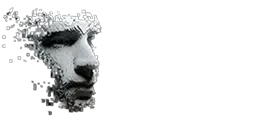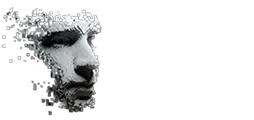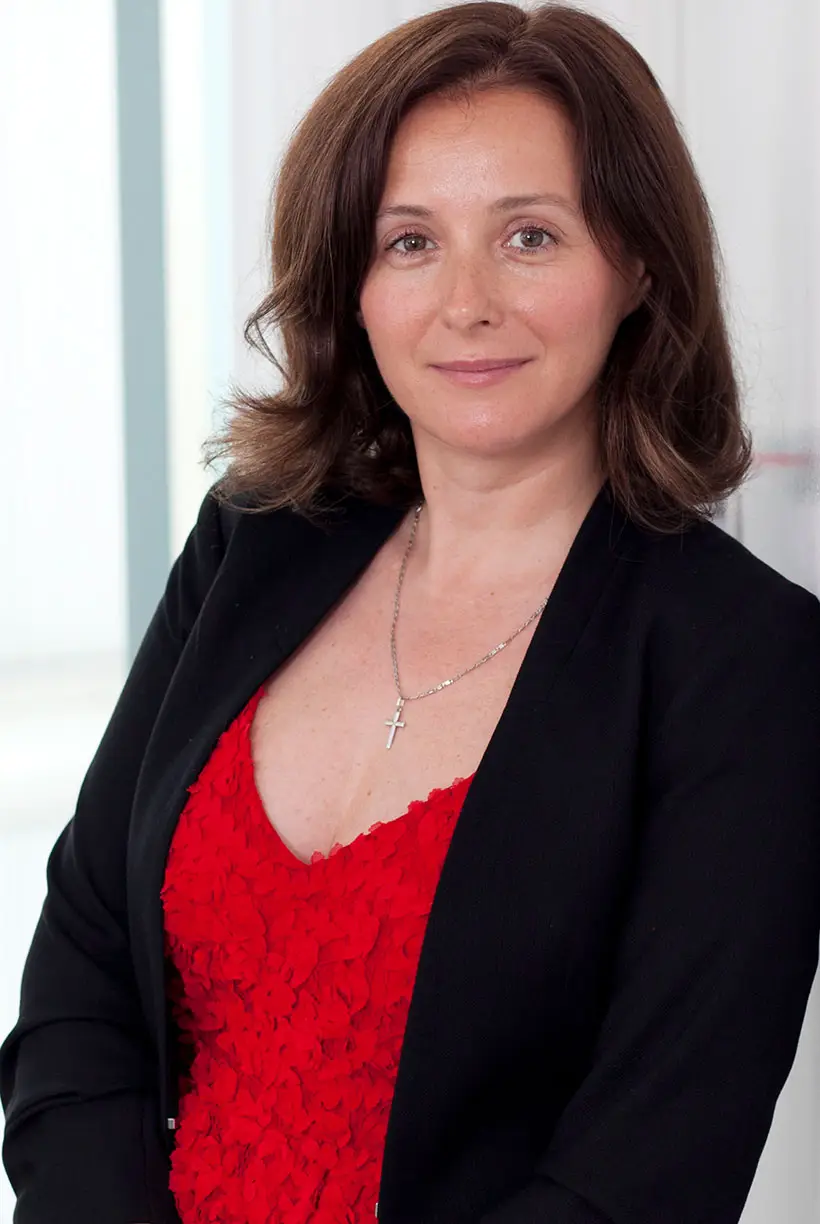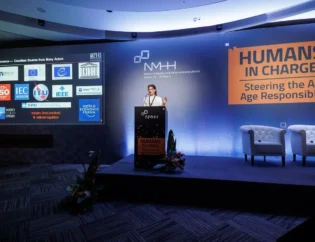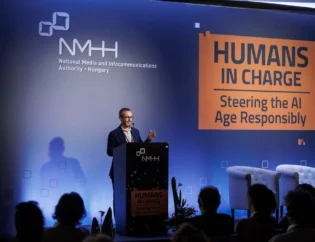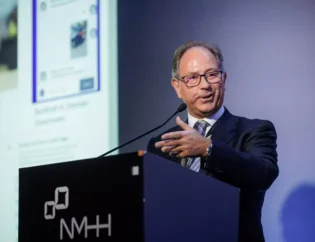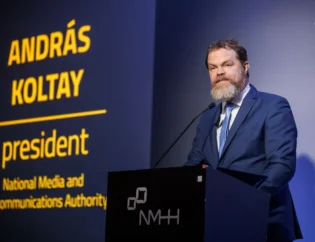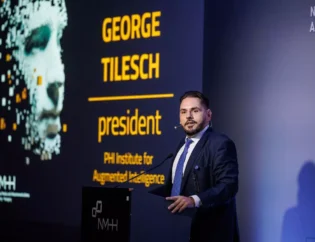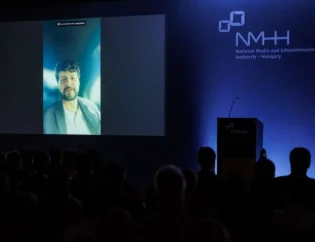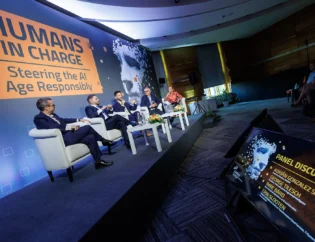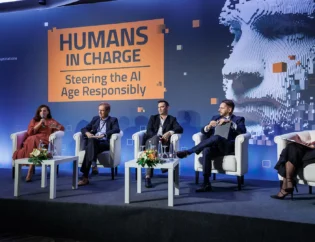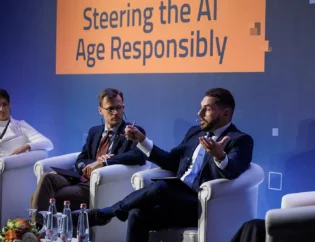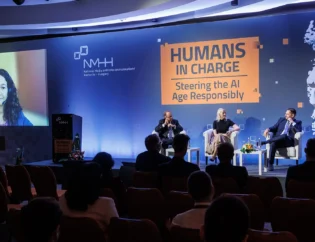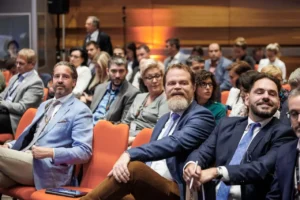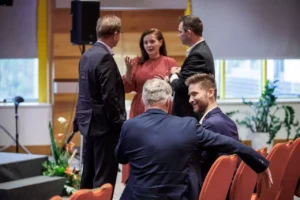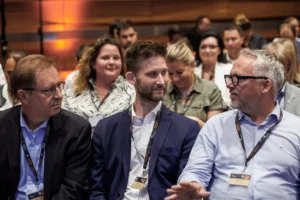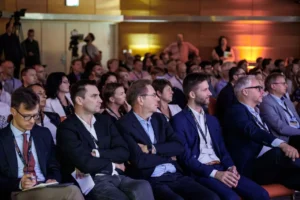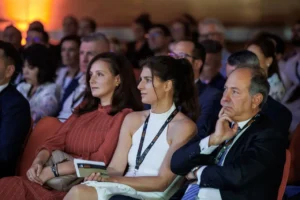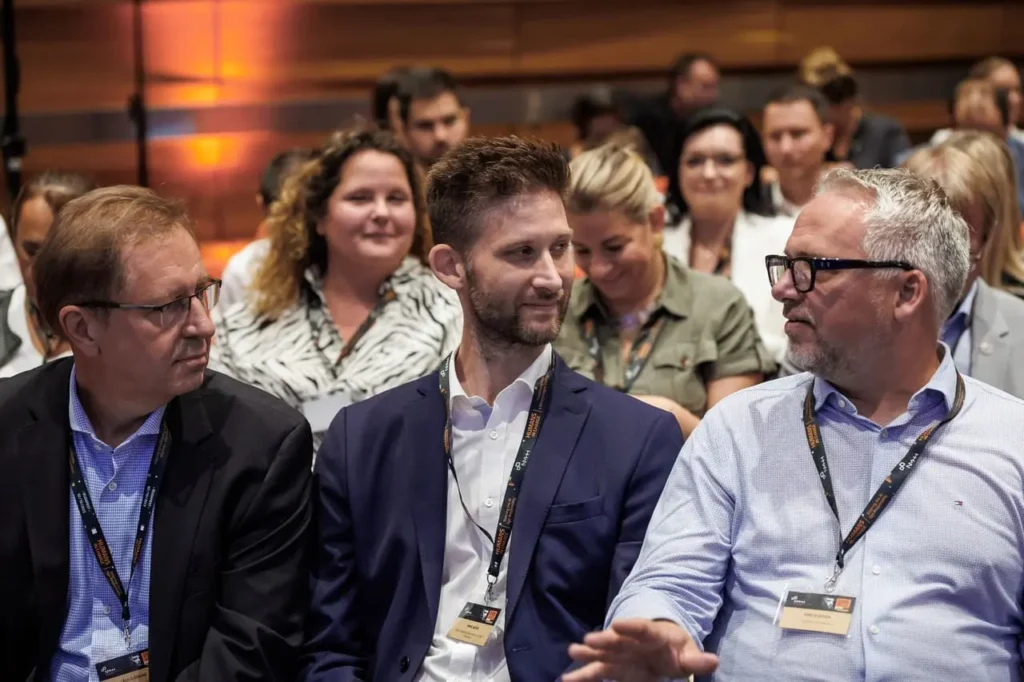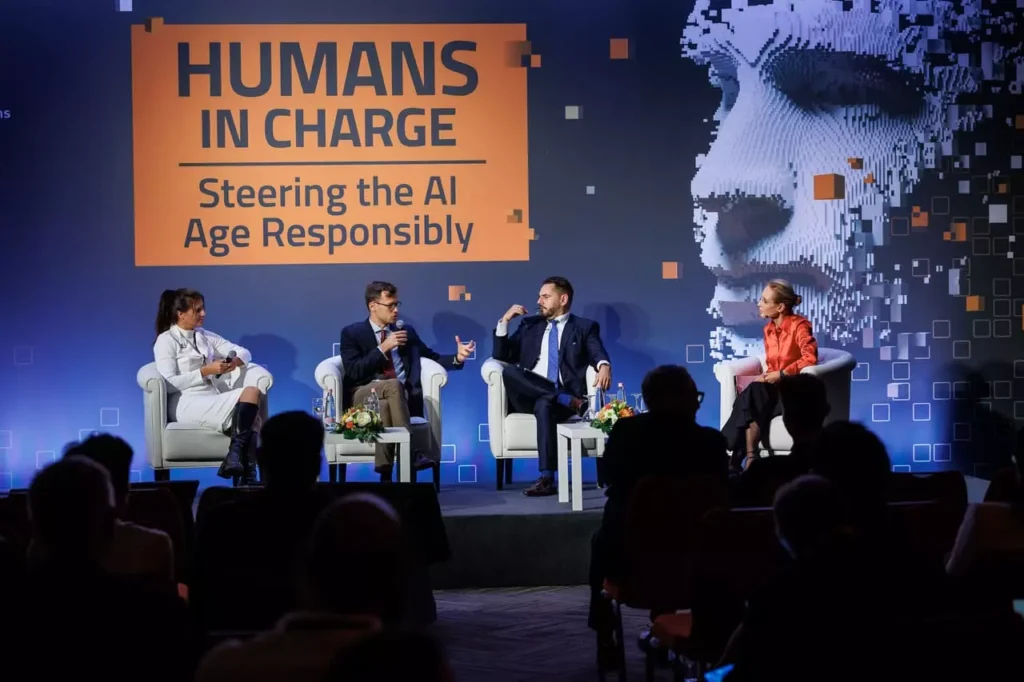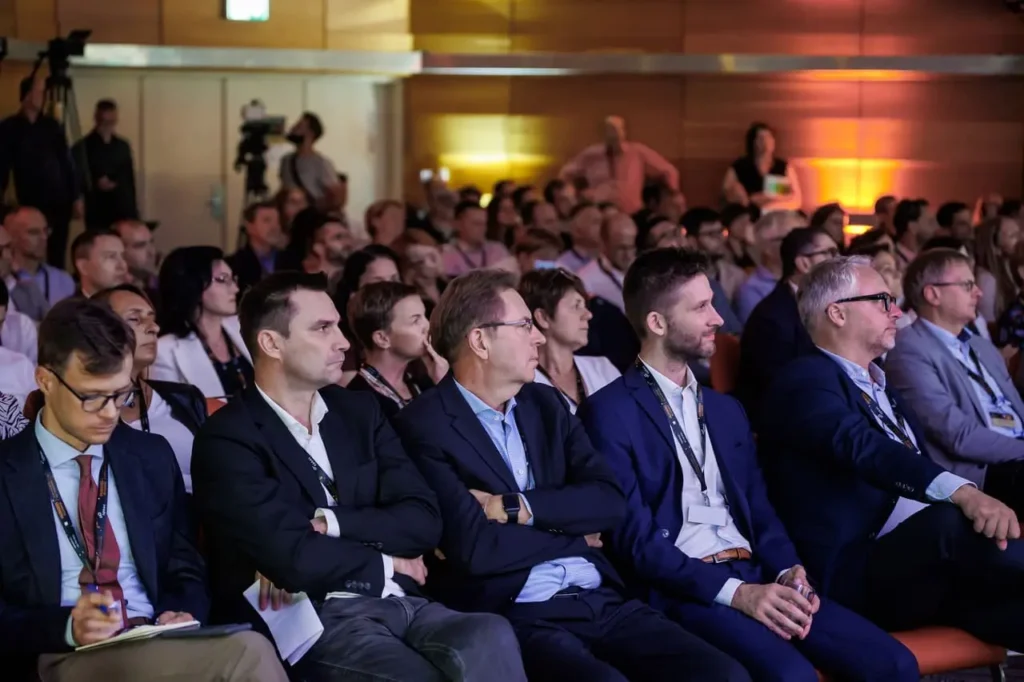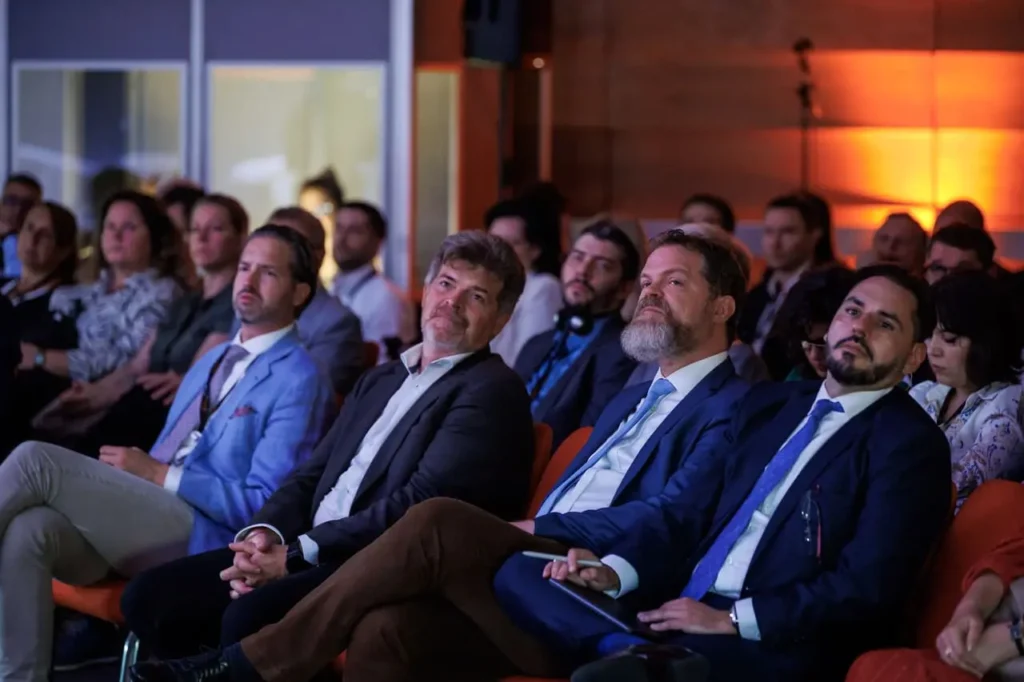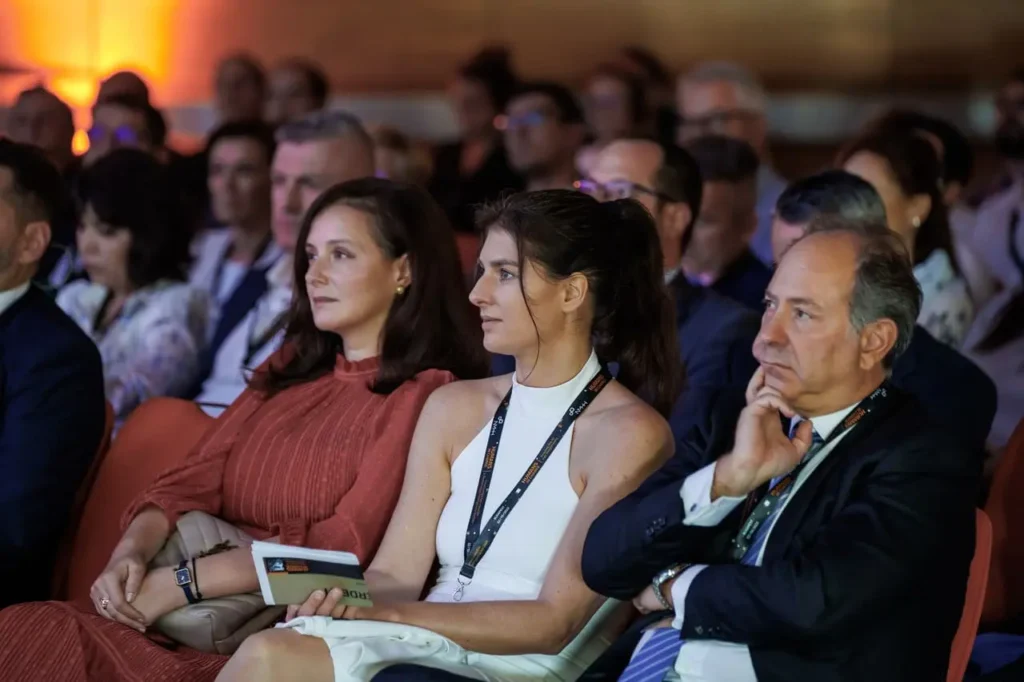Maria Luciana Axente: the safety and protection of children comes first
Maria Luciana Axente, speaker at the conference of the National Media and Infocommunications Authority (NMHH) “Humans in Charge – Steering the AI Age Responsibly”, is a Senior Research Associate at the University of Cambridge Interdisciplinary Research Centre where she focuses on responsible artificial intelligence and AI for good lead. Maria Axente is a world-renowned expert on AI ethics and a passionate advocate for children’s rights. She is a member of the management of several international professional organisations, such as the UNICEF AI for Children advisory group and the World Economic Forum’s Generation AI Programs.
Maria Luciana Axente entitled her presentation “Raising children in the age of AI”. The theme of the keynote speech is in fact very close to one of the priority activities of the NMHH, the host of the conference, namely, child protection in the digital age.
New opportunities with the use of artificial intelligence
“How will a digital world look like that is powered by artificial intelligence, a technology that promises to bring huge benefits to all of us, individuals and society?” the speaker asked. We do know that AI can make a difference in education providing our children with content and knowledge that is tailored to their abilities and talents.
AI can also help our children explore new and uncharted territories. Likewise, there is a great future for the use of AI in medicine to have healthier and happier children thanks to customised health plans.
The world has gone digital – but what about our children?
Children and parents now live in a drastically different world. “How many of us marvel at our children sitting in front of their devices instead of talking to each other or to us?” asked the question Maria Axente.
We have a digital world where our children spend most of their time, and parents struggle to understand how their children live in this world. How can they protect their children from the new risks and dangers that may emerge in the digital world, such as artificial intelligence? No matter how they have brought up their children, a new dilemma for parents is how to use AI in a way that allows children to understand their own needs, rights and expectations.
The fact that AI has a dark side was brought to our attention years ago. We have read, seen and heard many stories in the media about AI taking our jobs and robots taking over the world, but we have no tangible means of demonstrating the risks and potential harms this will entail. But the fact is that AI narrows human interaction, which can clearly be harmful to our children’s development. And the emergence and spread of generative artificial intelligence could further increase the risks just mentioned.
Initiatives to keep children safe
Years ago, no one was talking about the relationship between children and artificial intelligence. In the meantime, a number of specific questions have arisen that need to be answered:
What are the main effects to look out for? How should these be integrated into the design?
How can solutions be applied in the most efficient way?
In order to answer the questions raised, Maria Axente and her colleagues drew up an article focusing on the above questions. This led UNICEF to launch the “AI for Children” initiative.
The World Economic Forum then took up the issue and brought together experts from around the world – all for the sake of children’s safety.
The resulting guidance inspires policymakers around the world and gives them direction on how to approach integration in addressing children’s needs.
This speaker
Maria Luciana Axente
Responsible AI & AI for Good Lead, PwC UK
Maria is an Intellectual Forum Senior Research Associate.
She is a globally recognised, award winning AI ethics expert and public policy contributor.
She is a member of various Advisory Boards – UK All-Party Parliamentary Group on AI (APPG AI) ,ORBIT & SKEMA AI Institute, Vice Chair of techUK Data and AI leadership committee and member of BSI/ISO & IEEE AI standard groups.
More speakers


Axente



Erdelyi






Misuraca



Kriisa



Tilesch



Drajkó



Porkoláb



Halmos



Slooten



Bárd



Juhász



Benifei

